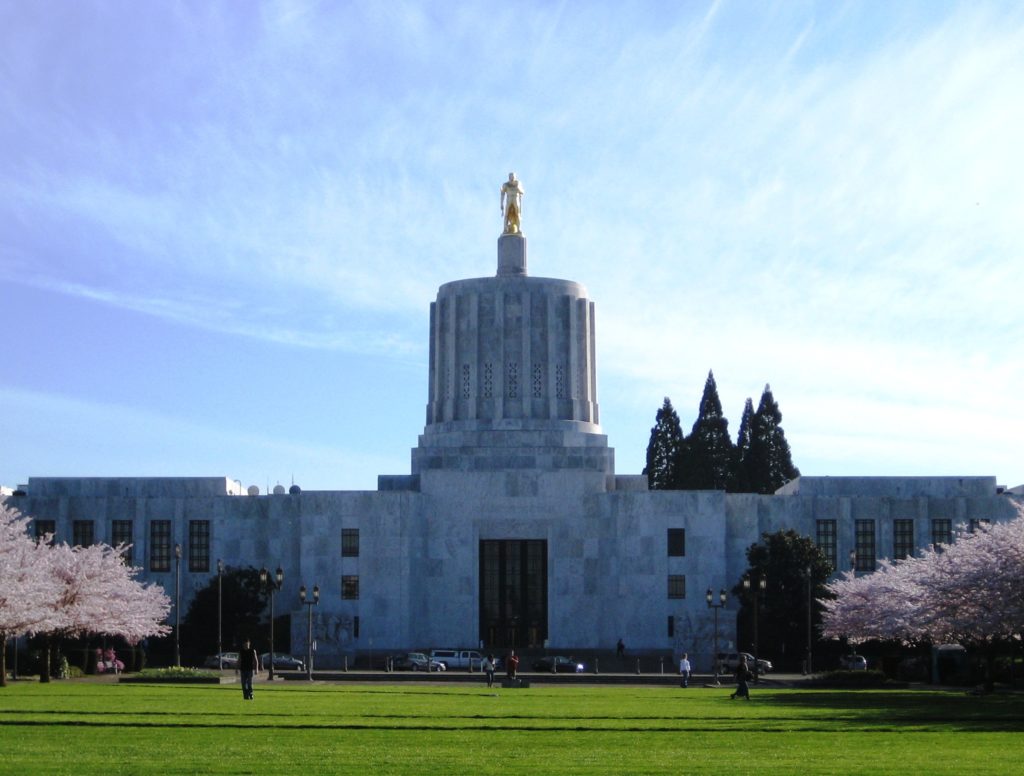April 7, 2021
State Legislative Actions: What to Watch
 Currently, there are several State legislative actions Cascadia is watching and engaging in. These legislative actions would have the potential to affect Cascadia’s funding, staffing, and services offered to the community. While legislative efforts will conclude in June, here is what we know now:
Currently, there are several State legislative actions Cascadia is watching and engaging in. These legislative actions would have the potential to affect Cascadia’s funding, staffing, and services offered to the community. While legislative efforts will conclude in June, here is what we know now:
Certified Community Behavioral Health Center (CCBHC) Funding (HB 3123): Currently the bill supporting the renewal of funding for the state’s CCBHCs was passed through the House Behavioral Health Committee, and is being reviewed by the Joint Ways and Means Subcommittee of Human Services. It appears to have broad bipartisan support, and the fact that it is supported at the Federal level through the next biennium gives us reason to be optimistic.
Addiction Recovery Funding (M110, SB 755): Passed in November, this bill/act calls for decriminalization of possession of a number of drugs, concurrent with funding for ‘Addiction Recovery Centers’. Unfortunately, it diverts marijuana money from schools, mental health, and other programs. It does, however, provide new resources for potential new services. There is also broad recognition that the need is more for treatment resources vs. assessment centers. There is an oversight group working on developing this model and adjusting the language to better align with intent.
Workforce Investments (HB 2949): This omnibus bill is focused on workforce investments in the behavioral health sector. The bill will contain a task force charged with developing tactics to diversify the behavioral health workforce. Additional efforts are underway in the budget process to secure substantial investments to support workforce recruitment and retention.
Parity Laws (HB 3046): These laws are meant to bring more parity to funding for behavioral health with physical health. They will also address inequities in the commercial insurance system, but advocates are hopeful that organizations like Cascadia may then see broader opportunities to serve folks through commercial insurance.
Cell Phone Tax (SB 988): This legislation would essentially create a tax on cell phones to help fund a centralized crisis line and fund additional crisis services. This is in response to federal legislation passed to improve access to crisis lines and services.
Beer, Wine and Spirits Tax (HB 3377): This was originally a proposed tax on this industry, which if passed would have brought significant funding to support substance use disorder treatment and prevention activities. The intense opposition had shifted the focus of the proponents to convening a workgroup to study the impact of alcohol pricing on public health.
State Hospital Capacity Increase (HB 2086): There are several avenues for proposed funding increases to support the residential mental health continuum and relieve pressures on the State Hospital. Work is being done through a legislative champion to determine where the investments should be made to ensure there is improved community access.
Peer-Led Respite Programs (HB 2980, SB 680): This is a proposal to open three peer-led respite programs in Oregon.
American Rescue Plan: Projected to bring $4.2 billion to Oregon, it will mitigate what may have been costly cuts to services and create new opportunities for re-investment into behavioral health.
